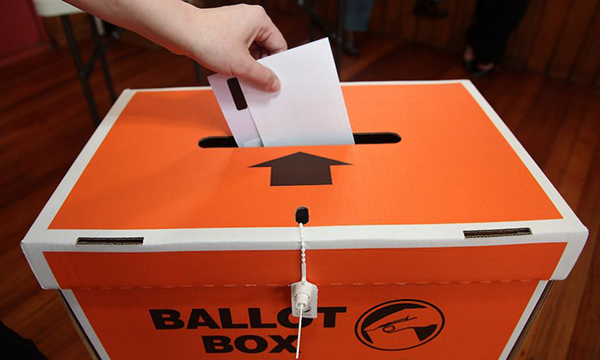
With the 2020 General Election only a few days away, we thought it timely to provide a quick summary of the major parties' policies in the area of employment and industrial relations.
NOTE: these policy summaries have been pulled from the parties' own websites and are not the opinions of Grow HR.
–––
ACT
ACT says, “We would return the minimum wage to its pre-April 2020 level of $17.70 an hour to make hiring and retaining employees more affordable. We would also extend provisions to 90-day trials to 12-month probationary periods, available to employers of all sizes, to make hiring less risky.”
–––
Greens
The Green party’s policies include:
- Fair wages and conditions.
- a. Progressively increase the minimum wage and abolish differential rates for youth and people with disabilities.
- b. Ensuring the state sector pays a living wage and requires service contracts to pay their staff a living wage.
- c. Establishing a minimum age for formal employment.
- d. Improving workplace protections for causal, fixed term and piece-rate people, including dependent contractors and migrants.
- e. Opposing trial periods.
- f. Promoting and progressing pay equity and equal employment opportunities for women, Māori, people of colour and other groups who have experienced historic discrimination in pay and conditions.
- g. Providing legislative protection for labour hire working people and ensuring triangulated employment arrangements are not used to avoid workplace rights.
- h. Ensuring current protections are achieving their intended policy purpose by requiring these to be regularly reviewed.
- i. Establishing a minimum statutory entitlement to redundancy compensation and ensuring insolvency laws give fair priority to redundancy pay and accrued leave.
- 2. Valuing time outside of work. Specific policies include:
- a. Increasing paid parental leave to a total of 15 months and allowing leave to be used by both parents in the first three months.
- b. Ensuring workers have access to paid rest breaks across all sectors.
- c. Moving towards a shorter standard working week and introducing legislation to ensure time in lieu or overtime for hours in excess of contracted hours.
- d. Progressively increasing annual leave to 5 weeks.
- e. Progressively increasing sick leave to 10 days.
- f. Ensuring bereavement leave entitlements are culturally appropriate.
- g. Ensuring leave is available for victims of domestic violence to leave an abusive relationship.
- h. Introducing carer’s leave for those caring for dependent immediate family members.
–––
National
National says that it will “simplify industrial relations legislation to reduce red tape and encourage businesses, in particular small businesses, to create new jobs."
It wants small businesses to be “trusted to do the right things by their staff without overly burdensome employment law and red tape holding them back.”
National says that it believes in “a flexible, productive workplace where workers get a fair deal and businesses are productive. National supports an approach where employees and employers are trusted to work employment matters out themselves in good faith.”
National also plans to implement a “JobStart” policy which it says will encourage businesses to create new jobs, get New Zealanders back into work and off Government welfare.
National’s JobStart scheme will:
- Provide a $10,000 cash payment to businesses that hire additional staff as part of our commitment to keeping New Zealanders in jobs.
- Give businesses greater confidence to hire new fulltime permanent staff and could incentivise up to 50,000 new jobs.
As well as JobStart, National says it will:
- Repeal the Government’s changes to the Employment Relations Act. This would include ending the ban on 90- day trial periods for medium to large employers, and overturning mandatory rest and meal breaks.
- Simplify the employment dispute resolution process.
- “Get rid of the ‘no win no fee’ provisions in the Employment Relations Act.” We think this means regulate ‘no win no fee’ representatives, as there are no such provisions in the Employment Relations Act.
- Ensure laws and polices get the right balance between health and safety and productivity.
–––
Labour
Labour says that it will be adding new 2020 campaign policy announcements to its website ahead of the October 17th election. However, current policies include:
- Labour will implement a major support package to assist businesses in hiring at least 40,000 New Zealanders whose employment is impacted by COVID-19.
- Labour will:
- progressively extend Living Wage guarantees to contractors to the public sector – such as cleaners, caterers, and security guards.
- increase minimum sick leave entitlements from five days to ten days a year.
- increase the minimum wage to $20 an hour in 2021.
- make it easier for women to gain pay equity in their organisation or across their industry, by ensuring there are better records of pay equity across New Zealand, including by ethnicity and age as well as gender.
- make it easier for workers to receive fair wages and conditions, and avoid the 'race to the bottom' that occurs within competitive industries by implementing Fair Pay Agreements.
- strengthen and simplify the Holidays Act, and allow sick leave to be taken when needed.
- protect vulnerable workers by legislating protections for dependent contractors and by recognising security guards as vulnerable workers to ensure their terms and conditions are protected.
- raise the age for workers to be allowed to perform hazardous work, ensure all workers have the right to elect health and safety representatives, and ensure Seafarer Welfare Centres provide better services.
–––
New Zealand First
Nothing currently available.
–––